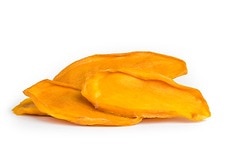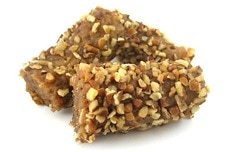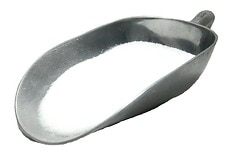The Complete Guide to Sugar Substitutes
As humans, we evolved to have a sweet tooth. In evolutionary times, eating sugar was an effective way to gain calories in a feast-or-famine world where steady food sources were rare (Singh, 2014). In today’s modern world, however, that sweet tooth has turned into a major liability. With extraordinarily high prevalence of sugary foods, many people have difficulty keeping their sugar consumption within moderate levels. Understanding the common sources of dietary sugar as well as sugar substitutes can help you make healthier choices.
The Scope of the U.S. Sugar Problem
The American Heart Association (2016) recommends that added sugars make up no more than half of your discretionary calories per day. That means American women may have 100 calories of sugar per day (about 26 grams), while men should limit themselves to 150 calories of sugar per day (about 39 grams). Keeping daily consumption below 20 grams may be even more beneficial for long-term health (American Heart Association, 2016).
Unfortunately, Americans are far from meeting these dietary targets. In 2010, men in the United States consumed an average of 335 calories of added sugars each day, while women ate 239 calories from sugar each day (Bethene Ervin & Ogden, 2013). This is more than twice the recommended daily amount. Drinking soda was one of the top culprits for adding excess sugar to the diet (Bethene Ervin & Ogden, 2013).
What Does the Body Use Sugar For?
Our bodies actually depend on sugar to perform a range of physiological functions. One particular type of sugar, known as glucose, is the top source of energy in the body (National Institutes of Health, 2014). The body breaks down carbohydrates, fats, and protein molecules to create enough glucose to fuel muscle actions, keep the brain active, and perform other physiological actions. Thus, you actually do not need to receive much -- if any -- glucose directly from your diet to keep your body working properly. As long as other energy sources are available, glucose can be synthesized from these compounds instead.
What Are Natural Sugars?
As their name implies, natural sugars are those that are naturally found in a particular food. Some food groups contain more natural sugars than others. The following foods are naturally high in sugar (Cancer Treatment Centers of America, 2014):
- Fruits. Naturally occurring sugars are what make many fruits taste so sweet. As fruits ripen, their natural sugar content increases. Much of this sugar is in the form of fructose, a monosaccharide (simple sugar) molecule that is similar in structure to glucose. Like glucose, fructose is absorbed into the bloodstream in the small intestine.
- Dairy products. Dairy products naturally contain a type of sugar called lactose. Lactose is a disaccharide, or complex sugar molecule. It is created through the combination of glucose and galactose, meaning that it can be broken down into these molecules (Cancer Treatment Centers of America, 2014).
The American Health Association recommendations for daily sugar intake do not refer to sugars obtained from natural sources such as fruits or dairy products. Instead, they only apply to added sugars.
What Are Refined Sugars?
Refined sugars are derived by processing other foods to create sugar. Most frequently, refined sugar is created from sugarcane or sugar beets (Cancer Treatment Centers of America, 2014). Once extracted, refined sugars typically take the form of sucrose. This is another disaccharide molecule created from the combination of fructose and glucose.
It is not always easy to spot refined sugars in ingredient lists. These sugars go by many names, including (American Heart Association, 2014):
- White sugar
- Brown sugar
- High-fructose corn syrup
- Corn sweetener
- Honey
- Invert sugar
- Fruit juice concentrates
- Corn syrup
- Malt sugar
- Molasses
- Sugar
- Syrup
- Raw sugar
- Dextrose
- Maltose
- Sucrose
- Glucose
Keeping your eye out for those refined sugar buzzwords can help you keep track of the added sugars in your diet.
Potential Health Problems Associated with Refined and Natural Sugars
Public health officials have reason to be concerned about Americans’ overconsumption of sugar. Eating too much sugar -- whether from natural or refined sources -- is associated with numerous chronic health conditions. Of course, the amount of sugar in natural sources (e.g., fruits or dairy products) tends to be much lower than the added sugar obtained from processed foods. Thus, it is important to cut back on high-sugar processed foods whenever possible.
One of the most prominent health problems associated with high sugar intake is diabetes. Type 2 diabetes is characterized by an inability to regulate blood glucose levels appropriately (American Diabetes Association, 2015). Regularly eating too much sugar can cause your body to become resistant to insulin, the hormone that typically tells your body to package excess blood glucose into cells. This means that your blood glucose levels fluctuate, which can lead to several health complications. Eating a diet low in added sugars decreases your risk of developing type 2 diabetes.
Excess sugar is also associated with obesity. Each molecule of sugar represents four calories. With many Americans eating 200 to 300 excess calories from sugar each day (Bethene Ervin & Ogden, 2013), this can quickly contribute to weight gain.
Finally, eating too much sugar increases your cardiovascular risk. In one study, people with the highest added sugar intake were nearly 2.5 times more likely to die of cardiovascular disease (Yang et al., 2013).
Alternatives to Refined and Natural Sugars
Concerned about the potential health ramifications of a diet high in added sugars, many people have been turning to sugar substitutes to try to improve their health. There are several sugar substitutes available, each with their own benefits and drawbacks. Perhaps the best approach is to try to reduce your craving for sweet foods by focusing on naturally sweetened or naturally sugar-free foods. Consider the following sugar alternatives (Mayo Clinic, 2015):
Stevia
Stevia is a sweetener that comes from an herb. It is considered non-nutritive, meaning that it adds zero calories to your diet. Additionally, stevia is approximately 200 times sweeter than sugar. This means that just a tiny amount of stevia can go a long way in sweetening foods.
Agave Syrup
Agave syrup is produced from a specific species of cactus and has a similar texture to honey. Because it is higher in fructose than table sugar, it is less likely to cause your blood sugar to spike.
Aspartame
Aspartame was one of the first artificial sweeteners to be approved by the Food and Drug Association, gaining its approval in 1981. Since that time aspartame (sold as NutraSweet and Equal) has been added to soft drinks, yogurt, gum, and other products. In moderation, aspartame is thought to be a healthy sugar substitute (Betsch, n.d.). However, people with the condition phenylketonuria should avoid aspartame.
Saccharin
Saccharin, sold as Sweet N Low, is commonly added to drinks, candy, and certain canned goods. Although early studies showed that saccharin increased bladder cancer rates in rats (Betsch, n.d.), no evidence suggests that this sugar substitute is unhealthy for humans.
Sucralose
Sucralose, also known as Splenda, contains zero calories per serving. This means that it makes an acceptable artificial sweetener for people trying to maintain their weight. Unlike some other artificial sweeteners, sucralose is not heat sensitive (Betsch, n.d.). This makes it an excellent baking substitute. Sucralose is also found in canned fruit, syrups, and fruit drinks.
Sugar Alcohols
Sugar alcohols are a unique class of sugar substitute. These carbohydrates are naturally found in certain fruits and vegetables (Mayo Clinic, 2015). Sugar alcohols fall somewhere between zero-calorie sweeteners and refined sugars in their caloric content, which is 2.6 calories per gram. Eating large amounts of sugar alcohols can sometimes cause gastrointestinal distress because they are not fully digested (Betsch, n.d.).
Recipes with Sugar Substitutes
The following recipes offer sweets that utilize alternatives to refined sugar to supply their scrumptious savor.
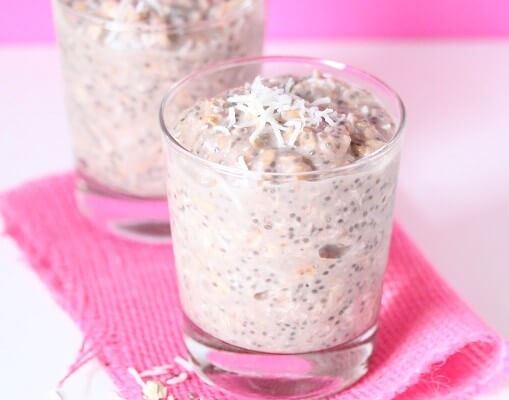
Strawberry and Banana Overnight Oats Recipe
This delectable breakfast recipe offers a sweet savor that can be prepared the night before for a sweet way to start the day. Rather than rely on refined sugars, this palatable plate combines coconut, agave syrup, almond milk, and fruits to create its naturally sweet flavor.
Ingredients: Gluten-free rolled oats, chia seeds, walnuts, unsweetened shredded coconut, fresh or frozen strawberries, ripe bananas, agave or maple syrup, almond milk.
Total Time: 15 minutes
| Yield: 10 - 12 servings
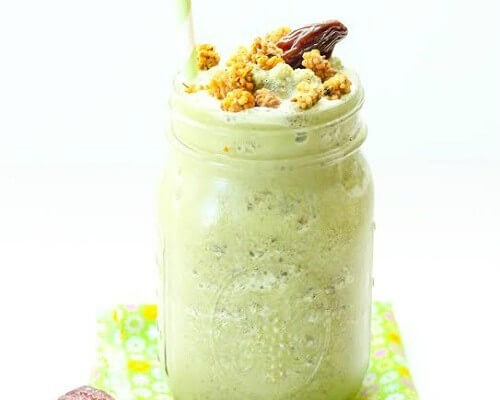
Matcha Green Tea Smoothie Recipe {gluten-free, vegan}
This superb smoothie supplies a scrumptious beverage that also offers a source of added protein and fiber, making it suitable for a post workout recovery snack or a meal replacement shake for those attempting to shed some weight.
Ingredients: Almond milk, matcha green tea powder, hemp protein powder, almond flour, dried mulberries, pitted dates, flaxseed meal, ice cubes, stevia powder.
Total Time: 5 minutes
| Yield: 4 smoothies
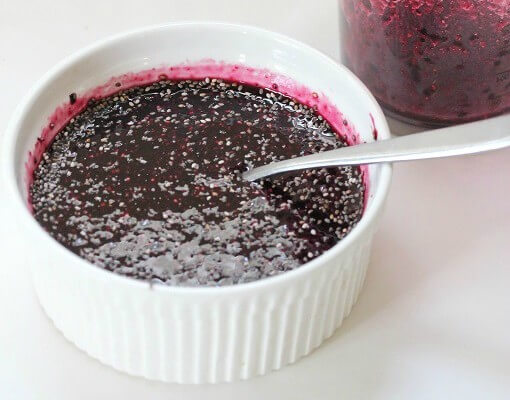
Blueberry Chia Seed Jam Recipe
Searching for a spread that supplies that same sweet savor as your favorite jam without all added sugar? This superb blend offers a natural source of sugar (agave syrup) to brighten your day with a taste that tops anything artificial.
Ingredients: Blueberries, chia seeds, organic agave syrup.
Total Time: 10 minutes
| Yield: 1 cup
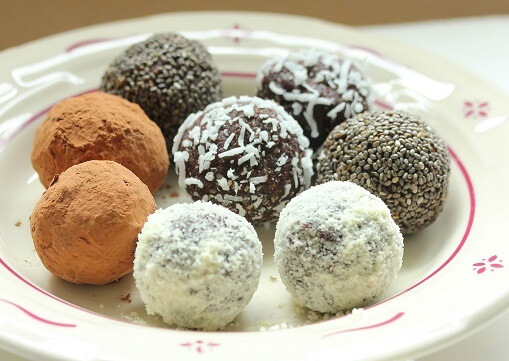
Healthy Vegan Chocolate Truffle Recipe
An idyllic dessert for those seeking for a more wholesome indulgence to enjoy amidst a diet averse to added sugars, these treats gain their sweet taste from their date base with an added kick from agave.
Ingredients: Jumbo Mejdool dates, almond flour, chia seeds, flaxseed meal, cacao powder, agave or maple syrup, almond milk, unsweetened shredded coconut.
Total Time: 15 minutes
| Yield: 24 truffles
Foods and Ingredients to Reduce Sugar Intake
The following products offer a way to tickle your sweet tooth without adding more unnatural sugars to your diet. For a full list of natural alternatives to sugar, find a full list of our substitutes here.
Healthy Eating
- Healthy Snacks
- Healthy Meals
- Healthy Recipes
- Sports Nutrition
- Nutrition and Special Diets
- 21 Day Fix
- 5 Popular Diet Similarities
- Alkaline Diet
- Anti-Inflammatory Diet
- Calorie Counting
- Carb Cycling Diet
- Celiac Disease
- Cholesterol
- Clean Eating
- Crohn's Disease
- DASH Diet
- Detox Diet
- Diabetes
- Diabetes Diet
- Diet Pill Dangers
- Fat Burning Foods
- Gluten-free Diet
- Glycemic Index
- Heart Health
- High Blood Pressure Diet
- High Fiber Foods
- How to Eat Healthy
- How to Lower Blood Pressure
- Hypertension
- IBS Diet
- Ketogenic Diet
- Liquid Diet
- Low GI Foods
- Low-Carb Diet and Foods
- Low-Fat High-Carb Diet
- Mediterranean Diet
- Mediterranean Diet Foods
- Military Diet
- Nutrition Labels Explained
- Paleo Diet
- Raw Food Diet
- Superfoods
- Sustainable Weight Loss
- Thrive Diet
- Vegan Diet
- Vegetarian Diet
- Weight Loss Shakes
- Whole30
- Vitamins, Minerals & Nutrients

